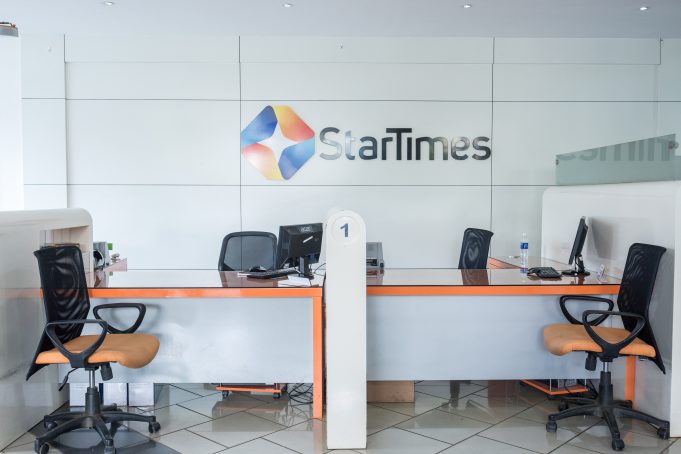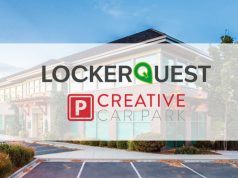In the ever-evolving world of work, a new frontier has emerged: the modern hybrid office. It’s not just a workplace; it’s a dynamic ecosystem where physical and digital spaces seamlessly merge.
As you navigate this world, one significant query stands out. It’s about ensuring visitors, whether stepping into your office or joining you virtually, have an exceptional experience. This is where this article comes into play.
In this article, you will find innovative solutions and untangle challenges. It will provide insights that will empower you to create welcoming, efficient, and engaging environments for all your guests.
The Evolution of Hybrid Workspaces
Hybrid workspaces blend the best of both worlds: in-person collaboration and remote work capabilities. These environments accommodate the diverse needs of a workforce that values flexibility and autonomy. They’re not just a trend but a necessity in today’s work landscape.
In hybrid offices, employees can choose when and where to work, and visitors must integrate seamlessly into this dynamic environment. The boundaries between office and home have blurred, leading to a reimagining of what an office should be.
As per McKinsey Global Institute analysis, workplace attendance remains stable. It is at a level that is 30% lower than it was before the pandemic. It suggests that post-pandemic, employees still favor spending significantly less time working at the physical workplace, appreciating the convenience it offers.
Depending on the city, the requirement for office space by 2030 might be 20% less than in 2019. Thus, it’s safe to say that a hybrid workspace is here to stay, as work is not affected at any significant level.
Redefining First Impressions
Today’s hybrid offices demand a rethinking of what a welcoming environment means. It’s about seamlessly blending physical and digital interactions. Imagine a guest arriving, greeted not only by a friendly receptionist but also by a user-friendly digital check-in system that anticipates their needs. It’s an experience that respects their time and preference for contactless interactions.
First impressions extend beyond the physical space in a modern hybrid office. Virtual visitors joining meetings from remote locations also deserve a warm and accommodating welcome. Ensuring that technology is intuitive and reliable becomes paramount in this context.
Leveraging Technology
Digital check-in systems are a prime example of leveraging technology. They allow visitors to register their arrival quickly and efficiently, reducing wait times and paperwork. This technology also enhances security by providing real-time data on who is in the office at any given time.
Visitor management software can offer a personalized touch. It can send pre-visit information to guests, such as directions to the office, parking details, or even a virtual tour. It makes their journey to your office hassle-free.
The value it brings cannot be ignored. Thus, according to MMR research, from 2021 to 2029, the total income from these solutions is anticipated to increase by 12.8%. That will reach to come around USD 2440.8 million.
The main reason behind this is the digital transformation at large. Organizations increasingly use automated and digitalized solutions to streamline their operations and boost efficiency.
Meeting rooms are transformed into smart spaces with video conferencing tools, interactive whiteboards, and automated controls for lighting and temperature. It ensures in-person and virtual participants have a smooth and productive meeting experience.
In the modern hybrid office, technology bridges gaps and enhances connections. It simplifies visitor experiences, making them more intuitive, convenient, and enjoyable.
Enhanced Security and Access Control
Ensuring the safety of everyone in a modern hybrid office is paramount. With the evolving landscape of workspaces, traditional security measures have had to adapt to the changing needs and dynamics.
Therefore, you need a management system that can oversee the visitors. A visitor management solution enables contactless check-ins, minimizing physical contact and reducing health risks. These systems can integrate with access control systems, ensuring that visitors can only access approved areas, enhancing security further.
Greetly states that these solutions offer more than just a simple sign-in sheet. They provide a comprehensive approach to security and access control. With features like visitor badges, photo captures, and instant notifications to hosts, they help organizations keep a close eye on who’s in their space.
In a modern hybrid office, these enhanced security measures not only protect the office and its assets but also reassure visitors and employees alike.
Personalized Experiences
Imagine this: A client arrives at your office, and the lighting adjusts to their preferred brightness as they step in. Also. their favorite beverage is ready and waiting. The meeting room is set up exactly as they like it. However, the presentation is displayed on the screen, just as they left it during their last visit.
This level of personalization can leave a lasting impression, fostering stronger relationships and business partnerships. Personalized experiences extend to virtual guests as well. Offering them a user-friendly interface, tailored content, and easy-to-navigate virtual tours can enhance their experience and engagement.
Creating Collaborative Spaces
Digital collaborative spaces are crucial in the modern hybrid office. Video conferencing tools, interactive whiteboards, and shared project management platforms facilitate seamless communication and collaboration among team members, regardless of their physical location.
These digital tools ensure that virtual visitors are as much a part of the collaborative process as those on-site. Modern hybrid offices prioritize ergonomic furniture, high-speed internet, and acoustics that support effective communication. It makes every visitor’s experience conducive to collaboration.
Sustainability and Wellness
Energy-efficient lighting, heating, and cooling systems integrate sustainability into the office design. Materials used in construction and furnishing are often eco-friendly and sourced responsibly. Some offices even incorporate green spaces and indoor plants to improve air quality and create a calming atmosphere.
Wellness initiatives are equally essential. Visitor experiences in modern hybrid offices are enhanced by features like ergonomic furniture, natural lighting, and spaces that encourage physical activity and relaxation. Many offices offer wellness programs, such as yoga classes, meditation rooms, or healthy food options in their cafeterias.
Just 11% of organizations use the office premises they lease or own, while over 45% use half or less of the space. According to Computer World, companies’ office footprints are radically shifting as they adjust to an increasing hybrid and remote workforce. Thus, with decreasing office space, it makes perfect sense not to waste energy and move forward with the sustainable approach.
Recession is another factor that influences how firms regard office space. Building occupiers often review their portfolios during economic downturns, and the present slump is no exception. Thus, a more sustainable approach leads to less money expenditure and encourages saving.
Visitor Experiences: Key to Modern Offices
In the dynamic landscape of modern hybrid offices, visitor experiences are taking center stage. It’s clear that these spaces are no longer just about desks and chairs; they’re about crafting welcoming, flexible, and secure environments. By embracing technology, personalization, collaborative spaces, sustainability, and wellness, these offices are rewriting the rulebook on how guests are greeted and engaged.
The future of workspaces lies in rethinking visitor experiences. It bridges the physical and digital space to create environments that inspire productivity, foster connections, and prioritize both people and the planet.










